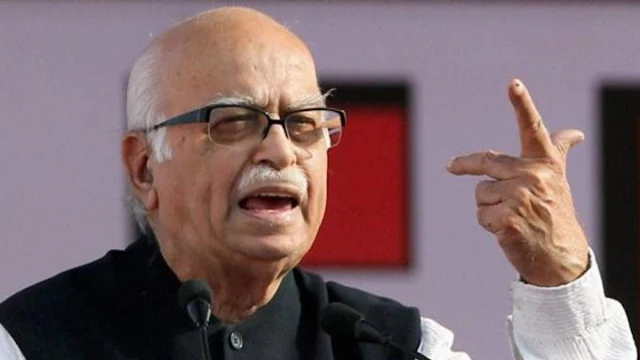The recent announcement of Lal Krishna Advani receiving the Bharat Ratna, India's highest civilian award, has ignited a firestorm of debate. While supporters laud his long and distinguished career in public service, critics point to his involvement in divisive political events and communal controversies. Navigating this complex terrain necessitates a nuanced examination of Advani's life and legacy, acknowledging both his contributions and shortcomings.

A Life Dedicated to Politics:
Advani's political journey began with the Rashtriya Swayamsevak Sangh (RSS), a Hindu nationalist organization. Rising through the ranks of the Bharatiya Jana Sangh (BJS) and later the Bharatiya Janata Party (BJP), he played a pivotal role in shaping the ideological direction of these parties. As Home Minister under the Atal Bihari Vajpayee government, he implemented key reforms like the National Highway Development Project and the Pokhran-II nuclear tests. His leadership in bringing disparate parties together to form the National Democratic Alliance (NDA) paved the way for the first non-Congress majority government in decades.
Controversial Figure:
However, Advani's record is not without blemishes. His role in the demolition of the Babri Masjid in 1992, a defining moment in India's communal history, remains deeply contested. Critics argue that his incendiary speeches leading up to the event contributed to the violence that ensued. Additionally, his tenure as Home Minister saw the Gujarat riots of 2002, which cast a long shadow on his legacy.
A Balancing Act:
Evaluating Advani necessitates weighing his contributions against his controversies. His supporters highlight his commitment to public service, his strategic acumen in building political alliances, and his contribution to India's infrastructure development. They argue that judging him solely through the lens of controversial episodes ignores the broader sweep of his career.
Conversely, critics contend that his association with divisive events cannot be simply brushed aside. They maintain that awarding him the Bharat Ratna sends a problematic message, potentially emboldening extremist elements and undermining India's secular fabric.
Beyond the Binary:
The debate surrounding Advani's Bharat Ratna reflects the deeply polarized nature of Indian politics. However, reducing the discourse to a binary of "celebration" or "condemnation" is unproductive. A more nuanced approach recognizes the complexities of his career, acknowledging both his achievements and missteps.
Ultimately, awarding the Bharat Ratna is a subjective decision fraught with political implications. While individual opinions may differ, a critical examination of Advani's life and legacy, free from partisan bias, is crucial for a well-informed discussion on this controversial award.
Additional Points to Consider:
The article could be expanded to include specific examples of Advani's achievements and controversies, providing readers with a richer understanding of his impact.
International perspectives on Advani's legacy could be incorporated, showcasing the wider resonance of his career and the award.
The article could delve into the selection process for the Bharat Ratna, highlighting the potential biases and criteria involved.
By exploring these avenues, the article can offer a more comprehensive and thought-provoking analysis of the "Bharat Ratna for Lal Krishna Advani" debate.

0 commenti:
Post a Comment